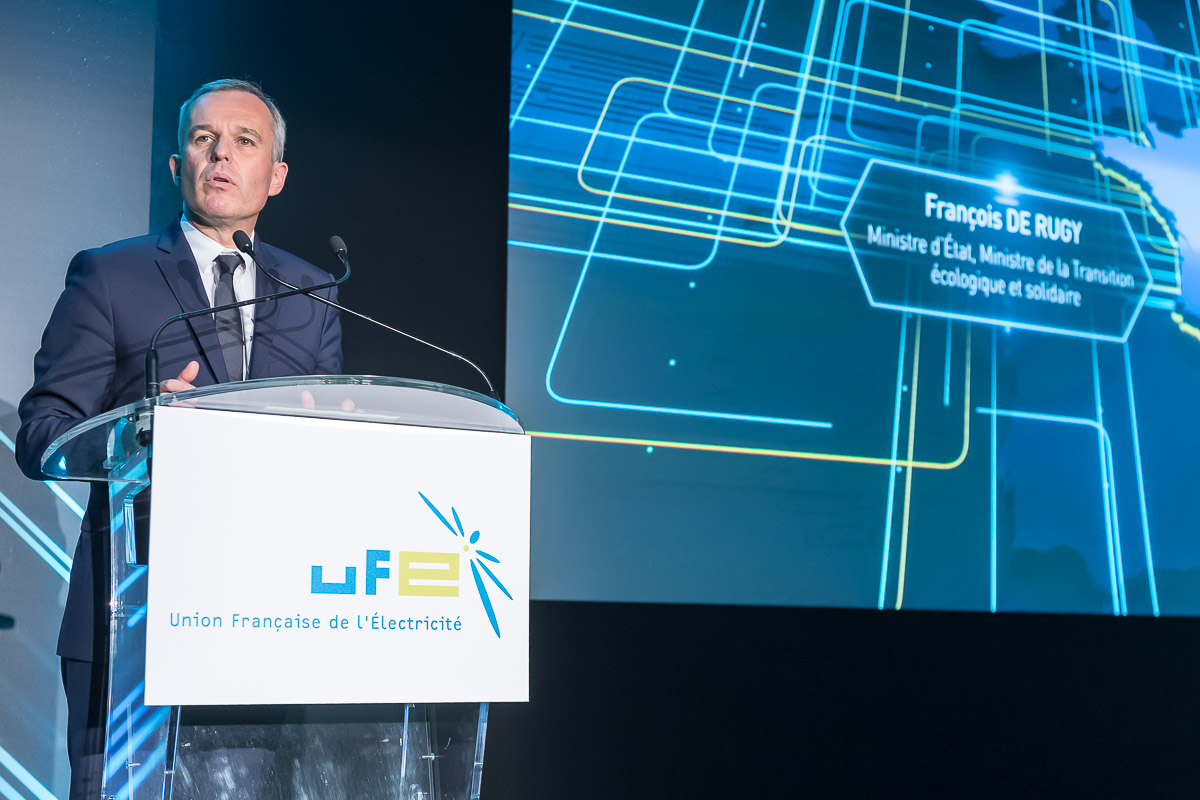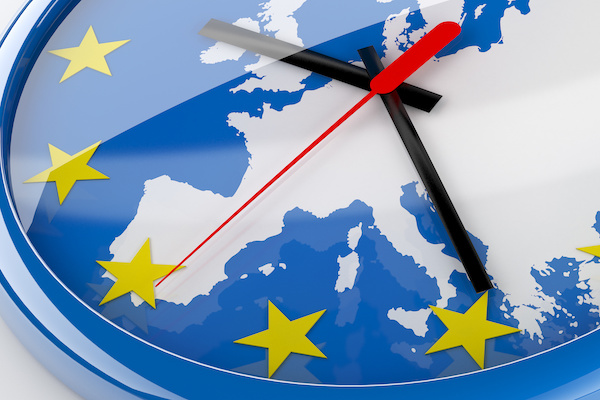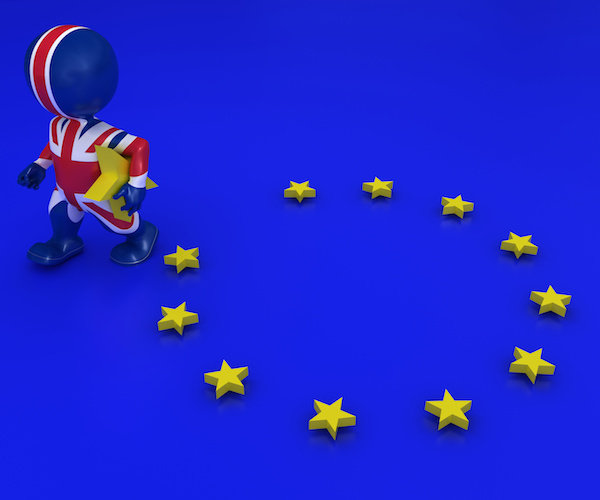05 December 2018
Cooperate to succeed: the annual conference of UFE at the heart of the current debates


Energy is at the core of the latest news: Emmanuel Macron presented the French Multiannual Energy Framework (PPE) and the National Low Carbon Strategy (SNBC), the European Commission unveiled its long-term climate strategy “A Clean Planet for All” ahead of COP24, and protest movements emerge against the increase in ecological taxation and electricity prices. UFE’s annual conference was particularly timely to illustrate how cooperation and partnerships should help solving the equation between climate, security of supply, purchasing power and employment.
Let us look back at the highlights of this special day.
Christine Goubet-Milhaud, President of UFE, opened the conference and explained that these themes go beyond the energy sector per se. They raise real societal choices and illustrate a “need for a cross-sectoral vision and cooperation”. As underlined, UFE plays a key role in bringing proposals to these debates, notably on supporting the socio-economic dimension of the energy transition. She announced the signature of a prospective study contract that will assess the jobs and skills necessary for the ecological and digital transitions. This project will run for 18 months and is the result of a joint mobilization of seven professional federations in the electricity sector: FFIE, FIEEC, Gimélec, IGNES, SERCE, Think Smart Grids, and UFE.
The need for cooperation at the European level
The President of UFE also underlined the European dimension of energy issues and the need for broader cooperation, “already a reality in the electricity sector”. The conference actually started with a focus on Europe, with Enrico Letta as first speaker. The President of the Jacques Delors Institute and former President of the Italian Council highlighted the peculiar context of 2019 for a European Union of 27 Members States. All the “faces” of Europe will change in the same year, and the Parliament will certainly have to work on a broader coalition than the two main political groups that held the majority of seats over the last 25 years. Enrico Letta believes that the upcoming European election will be less dominated by national issues and instead will “have, for the first time, Europe at its core”. He concluded by calling for a “social pact”, placing social issues at the heart of energy policies, be it in terms of support for workers, fuel poverty, tax harmonisation or energy diplomacy challenge.
In the introduction to the round table that followed, François Brottes, President of RTE, called on the electricity sector to “do more politics”, because he considers this sector as “exemplary in terms of solidarity”. Electricity networks are a good example: to ensure security of supply on the continent, common rules (the network codes) among TSOs have been created, that work as a “European language” and should be better promoted.
Need for coherence between the market framework and public policies, how to relaunch the European machine, watch the video of the round table moderated by Fabien Roques, with Anna Jarosz-Friis, DG Competition, Fabien Choné, Direct Energy, Sandra Lagumina, Meridiam, Michael Wünnerlich, BDEW, and Jonas Tornquist, Epex-Spot.
Digital transformation of companies and consumer expectations
Presenting the results of a survey conducted by Wavestone for the UFE conference, Clément Le Roy showed how consumer expectations were changing with the possibilities induced by digital technology and new electricity uses. Consumers are aware of the transformations and have a positive vision of innovation in the electricity sector. They are demanding in terms of quality of service and advice that suppliers can provide. In this respect, mobility is on the rise: 72% of respondents want their electricity supplier to provide them with access to a wide network of charging stations for electric vehicles and 63% expect their electricity supplier to provide advice on making the transition from thermal to electric.
Emmanuel Viale, Director of the Accenture Lab, then introduced the “wide-angle” roundtable on digital issues, indicating that the main trends of the X.0 company would be citizen Artificial Intelligence, amplified reality, infallible data, uninterrupted IT and the Internet of Thought.
In a very free and lively keynote, Rand Hindi, data scientist and CEO of Snips, brilliantly presented his thoughts on the promises but also the limits of Artificial Intelligence. Here as well, he considered that the human dimension and the cooperation between human and machine would be essential to make the most of the progress achieved.
The French Pluriannual Energy Framework (PPE) recognises the positive role of electricity
Minister of State François de Rugy spoke in the early afternoon and pointed out the government’s scenarios of the new energy policy: electricity consumption is predicted to be “relatively stable” by the end of the PPE, with energy efficiency compensated by new uses of electricity in sectors where fossil fuels are currently dominating. The Minister stressed that the climate priority was to reduce carbon-based uses in heating homes, transport and energy use by companies. He recalled the carbon-free characteristics of the French electricity once the last coal-fired power plants will be closed by 2022. He also announced the wide deployment of the most competitive renewable energies with the multiplication of wind power production by 3 and solar power production by 5 in order to reach 40% of renewable energies in the electricity mix by 2030. As for the closure of nuclear power plants, they must not jeopardise the imperative of security of supply.
François de Rugy also said that in the current debate on energy prices, he had been alerted by representatives of the “yellow jackets” on the upcoming rise in electricity prices. He recalled the intention of the government to send “consistent price signals for consumers” that would be readable over time. He called for maintaining the trajectory of CO2 prices and the catching-up between petrol and diesel taxation. In his opinion, the interruption of this convergence in 2000 was a contradictory political signal that is now causing difficulties years later. Concerning electricity prices, he will be attentive to the calculations of the National Regulatory Authority and call for a “moderate” evolution.
As a core dimension of the energy transition and a consequence of political trade-offs, the issue of jobs and skills was then discussed between Marie-Anne Barbat-Layani, CEO of the French Banking Federation, and Arnaud Leroy, CEO of ADEME, the French Agency for Environment and Energy.
Mobility and buildings, two essential sectors for the energy and climate policy
The next roundtable was opened by Philippe Monloubou, President of Enedis, who considered that UFE was an excellent place to deepen cooperation, particularly with the automotive sector on electric vehicles. The speakers were unanimous on electromobility: the question is not whether it will develop but when. The target of 4.8 million electric vehicles in circulation by 2028, announced earlier by the Minister, required now everyone to act together to make it a reality.
Watch the video of the electro-mobility roundtable with Philippe Monloubou, Juliette Antoine-Simon, Izivia, Christophe Bechu, Mayor of Angers, Michael Bucher, EnBW, Christian Peugeot, CCFA, and Scheherazade Zekri, Keolis.
Olivier David, Head of the Climate Service of the French Directorate on Energy and Climate, reviewed the Energy Efficiency Certificates (EEC) system, which is currently intensely debated regarding its effectiveness and the costs for consumers. He made it clear that the administration had heard the alerts from professionals and stressed that new working groups have been set up to improve the certificates. For instance, consultations on the “helping hand” scheme for 2019, the extension of CEE system to industrial sites subject to EU-ETS carbon quotas and future programmes and new standard operation have begun. Recurrently requested by stakeholders – UFE being one of them, the spot index of certificate prices should finally be implemented in the coming days.
CEE, simplification of mechanisms for consumers, taking carbon into account in public building policies, cooperation needs to widened actions, watch the video of the intervention of Olivier David and the debate between Florence Fouquet, Engie, Dominique Desmoulins, Promotelec, Marjolaine Meynier-Millefert, MP, Raphaël Meyer, Lancey Energy Storage, and Pierre Leroy, EP.
Four CEOs of major French energy companies at the same table as a highlight conclusion
To conclude the conference, Christel Heydemann, Schneider France, Isabelle Kocher, Engie, Jean-Bernard Lévy, EDF, and Patrick Pouyanné, Total, reviewed all the topics discussed during the day and showed the commitment of French companies. First observation: everyone stressed energy efficiency as a lever to meet the dual challenge of the climate and French people’s bills. On this subject as well as on the development of renewable energies, Christel Heydemann welcomed the common positions of the actors around the table, these issues bring about economic opportunities. Isabelle Kocher supported the pluriannual increase in carbon taxes, stressing that consumption reduction was the best way to save on energy bills. Patrick Pouyanné recalled that the energy efficiency priority was already asserted in the political debate back in 2007 but regretted that not much has actually happened since then. For Jean-Bernard Lévy, one of the causes of this delay lies in the “administrative maquis”, which requires deep simplification.
The four CEOs also regretted the insufficient place given to industrial development in French and European energy policies. They reported on the work of the National Industry Council (CNI) to develop a real energy sector in France, whose technical excellence is recognised internationally.
During a day rich in exchanges, the theme of cooperation emerged as a sine qua non condition for meeting the challenge of the energy, climate and digital transition in France and Europe. For each question that this transition raises, whether it relates to jobs or purchasing power; for each decarbonation lever – renovation, isolation, carpooling, replacing fossil fuels with clean energies – the solutions to be found must be collective. Electricity is a great vector to bring together a wide range of stakeholders around a common challenge that reconciles the environment, public health and economic growth.
Find out more
02 June 2020
“Long live Europe”: it’s time for Europe!
25 February 2020
Brexit: love last 47 years


About us
The Union of the French Electricity Industry is the trade association of the French electricity sector. We bring together companies from the whole value chain of the electricity industry.
Find out more










